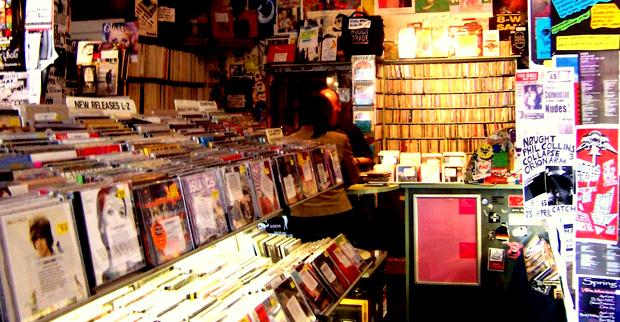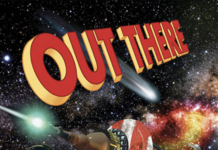With today’s technology and dwindling music sales, I can’t help but wonder if our technological advances have hindered many musicians.
NO! I can hear many new budding musicians saying. However, let’s go back to basics. Back in the 70’s/80’s we saw the birth of some of the biggest names to date in the rock and metal world – Metallica, Guns N’ Roses, Def Leppard, Motley Crue, Van Halen, AC/DC, Queen etc. It was hard enough to get a mix tape made, let alone get anyone to listen to it! There are countless stories about bands plugging away at the tough A&R guys and eventually getting heard. However, if you did manage to create your mix tape, you were one of the fortunate few that stood a better chance at being heard in the first place. Artists used to dream of being picked up by a label. No 360 deals, only the real thing. Huge advances, massive tours and you’d made it! A swift shoot to stardom in what seemed to be overnight.
Let’s bring this back to our time now shall we. Anyone can create a track with minimal cost. There are numerous companies out there that will happily take your money and distribute your track – even if you’re shit! Boom, you’re available online at all the standard ports of call for around 99p.
Now everyone that believes they are the next big thing can create music and continue to saturate an already over populated market. Don’t get me wrong, it’s ideal for a few artists out there and with certain streaming platforms; they may have even got discovered through it. My problem with this? The music industry as a whole has been demonetised! Discovering the next breaking band is as easy as finding a shard of glitter in a sand box! No longer are the labels the gate keepers to the industry, the flood gates have opened and the clean water has been blended in with the sea of shit that came through with it. Now the large advances and the dreams of being signed have gone, labels seem to no longer be a necessity and many artists are trying to take the independent route. It’s a long hard slog, and I truly feel for any musician in this climate.
So we understand the saturated market, now onto music sales!
I remember being an excited teenager, jumping on the bus and eagerly heading to my local record shop to buy the new album / single of a band I liked. Especially after numerous advert filled radio tapings I had of the track prior to official release. Buying it and taking it back home and putting it onto the computer. The added sense of excitement of finding a music video attached to it. The pride of showing your friends the new (who ever I was listening to at that time) single / album that was out that day. Comparing record / CD collections and the envy of your friend beating you to it and owning it first! Even the excitement at Christmas or on birthdays, getting a CD shaped present and praying it was the album I was after and praying my Mum didn’t mess up and get me something like Boyzone again! Yes that really happened; she did redeem herself with Tenatious D a little while later. If only she’d listened to it first. I’m sure she didn’t expect her 14 year old daughter to be listening to tracks talking about “Cock Pushups”.
Now you can go online and cherry pick from an album or you can have a digital download. Where is the pride in purchase? On a digital block in your pocket! You can’t truly appreciate an album as much as having it in your hand. Looking closely at the artwork, reading the insert and understanding that you are holding a part of someone’s journey. The effort that has gone into the whole package trumps the track title and play button you have in front of you. Yes, it’s convenient having music at your finger tips. But man, there’s nothing quite like having the physical thing. Something you can hold, reflect on and remember where you were in life when you brought it!
Now onto the streaming side, that’s really not helping the artists. Unless of course you’re signed to a major and would probably have your own deal cut. A very popular site – Spotify, pays its artists 0.001 pence per stream. Also streaming data has been added to the singles chart and 100 UK streams classes as ONE play / purchase!!!! One bloody play!! Artists are being corporately raped in return for their hard work! Just to throw some figures out there…. let’s say your average monthly subscription to these streaming sites are £10. In order for an artist to make £10 on their music being streamed, they would need 10,000 streams! Let’s say you have a very passionate music lover that does nothing more than stream constantly and hits 20,000 streams one month, that music lover would have earned an artist / artists collectively £20. All for what counts as 200 measly purchases in comparison! Music streaming doubled in 2014 with 14.8 billion individual tracks streamed in the UK alone. Taylor Swift also removed her music in 2014 from Spotify saying “I’m not willing to contribute my life’s work to an experiment that I don’t feel fairly compensates the writers, producers, artists and creators of this music.”
The US does it differently, 1,500 streams of any song from any album classes as one play / purchase for the Billboard charts. Unfortunately this has found situations where the albums the tracks are from have automatically found themselves pushed up the charts as well. As a result, the official chart company have said they will weigh their data to avoid similar situations occurring. The BBC broke this down by saying it will look at the 12 most streamed tracks from each album, down weigh the two most popular in line with the average of the next 10. These streams will then be added together, divided by 1,000 and this ‘stream factor’ will be added to the physical / digital sales of the album in order to produce an overall sales figure and to effectively work out the albums true position in the charts. In November 2014 Billboard.com announced the changes that streaming data was to be included in sales figures. Jim Urie, President / CEO of Universal Music Distribution was quoted for saying “Including streaming information is the next step in the evolution of the industry’s accurate measurement of music consumption. Streaming is the fastest growing configuration we now have and having it included in Billboard’s charts is a welcome improvement.”
That’s great! If you are fortunate enough to have enough money behind you to effectively market your product enough so people stream you. As an unknown, there is little hope!

I spoke to Mark Palmer who is the MD of Nuclear Blast UK, previously of Roadrunner UK about how digitisation has affected the music industry from a label perspective.
How do you think digitisation of the music industry has affected it?
MP: The simple answer is both for the better and the worse. Digital downloading and streaming have made music more accessible than ever before, while mobile devices allow the consumption of music 24/7. They have also handed back the control to the consumer allowing them to dip into any artist’s catalogue whenever and wherever they want, even if they don’t want to pay for this service. No more does someone have to buy an album for one hit song. The downside is that it’s very difficult for artists and labels to see reasonable income for the consumption of their music. Equally disturbing that it is becoming increasingly difficult to break new artists. Previously, the power of the press, TV and radio was enough to deliver hits. Now that Power has been diluted by the “Wild West” of the internet and social networks where millions of bands are jostling for space with everything else.
What are your thoughts on streaming music, and do you think it will ever evolve and music sales can be re monetised to a point artists see a substantial profit again?
MP: I got into music in the seventies, when vinyl still reigned supreme in the golden age of rock music. There’s no way streaming can incite the same emotional attachment to music that I experienced back then. That said, streaming is here to stay and who’s to say that I wouldn’t have embraced it if I was born in the 2000’s. However, I just can’t see how the subscription model is ever going to deliver any reasonable income for artists and labels.
Where do you see the industry going from here?
MP: In short, downsizing. It’s already been happening for years and will continue.
On the flip side, I also spoke to Andy Pilkington who has had steady success with bands on the independent front with the DIY route.

Now the market has been saturated, do you think it will ever recover? Will streaming pay rates improve?
AP: I honestly don’t think it needs to recover; it just needs to re-evaluate its targets.
There’s an absolutely thriving music industry out there, we just need to stop expecting it to provide a salary. The percentage of those able to do that historically was miniscule. Now the amount of people aiming for it is exponentially larger…It’s just about perspective and realism.
Streaming will improve, and yes it will yield better returns, but I think it will take a shift in bands attitudes first, where they understand DIY music is like DIY home improvements; you’ll still ruin your house if you don’t know how to use the right fucking tools!

I also spoke to Seven Webster to ask his thoughts; Seven is the worldwide manager behind Skindred, The Qemists and owner of 7pm management and organiser of Rockcomm.
How do you think digitisation of the music industry has affected it?
SW: Great music will always be in demand regardless of how it is consumed. If Adele makes a new album she and her management can decide where it is sold and say no to Spotify where there is little financial benefit for her and instead drive consumers and her fans to buy it from legitimate stores that will see her properly remunerated. .
There are now great anti pirating services like Audiolock who can have artists music removed from illegal Pirating sites within minutes which in turn drives consumers to buy from legitimate stores like iTunes where the artists and labels will benefit from a proven increase in legitimate sales..
Most of the larger independent labels are already finding improvement in sales via working with Anti Piracy companies and are having their releases properly policed to greater end reward for both artist and label.
The delivery of music I am sure will continue to adapt in the future. There will always be a demand for great music however it is delivered.
The only downside is that new delivery methods were not previously written into pre-existing historic artists contracts and as a result some of the payments from streaming sites to major labels for their catalogues usage have not been paid through to artists as provisions were not made in their original contracts. In short it is therefore advantageous for the catalogue owners to benefit this way rather than pay through artist royalties from streaming sites. This is a huge win for them in the short term and makes their annual accounts look better at a time when their A&R departments are only enjoying a 1-3 percent success rate in breaking new artistry which is simply not good enough and needs to be better addressed.
In short the digitisation of the music industry is becoming more controllable and is heading in the right direction going forwards to better remunerate artists and I am sure
As more new quality artists are signed and their music policed the industry will start to enjoy greater rewards.
What are your thoughts from an independent perspective on streaming music? Do you think it could ever evolve to a point artists once again see a substantial profit from their music sales?
SW: Streaming sites can be great for driving people to discover new music which some streaming sites do extremely well via playlists. Hopefully this in turn can continue to grow and encourage people to buy music from legitimate sites like I Tunes etc.
As mentioned above I think the future for legitimate sales is brighter due to the growing ability of anti piracy services to shut illegal sales down more swiftly resulting in better legitimate sales.
We just need more great new music and artists as always.
Where do you see the music industry going from here?
SW: Forwards as always evolving and changing like the world we live in.
To recap, a saturated market and music streaming paying out small amounts. It’s looking dismal at the moment with a glimmer of hope for the future. Not only have these areas been affected by technology, but also touring.
I spoke to Stu Phillips, who has been a well respected Tour Manager for over 30 years. He adds “It’s also had a profound effect on touring to. Whereas there would be territory releases and imports etc, now days the artist has to be in all territories at the same time and it’s exhausting talent because of the extensive roadwork etc.”

Adam Gregory from Bloodstock festival also contributed to has digitisation killed the industry and the impact on festivals.
AG: A really tough question, as lifestyles develop and the digital age becomes more prevalent in our everyday lives, it will mould how we live our lives. Once upon a time the only way you could see a band perform was via a LIVE performance at a show, now days, you can just log on. The reality however is that nothing can replace the “BEING THERE” vibe you get from going to a show but we need to continually remind people of this. The older generations get this and will always be attendee’s, but the younger generations need to understand there is no feeling you can get from sitting in front of a computer screen that can compare with REAL experience. At the minute, we aren’t hugely affected in my opinion, but who knows what level of digital enhancements are to come in the future. My advice would be, get to a festival while you can and LIVE in the moment, after all, isn’t that where memories are created.
I couldn’t have put it better Adam!
So the general consensus of this article is that the music industry has changed dramatically. Releasing your own music is much easier than 30 years ago; however making yourself stand out above the rest is much harder. With a competitive market and cut throat payment systems, no one can really tell where things are going. Will the industry evolve and survive or will there be no ‘next Metallica’ and will what we class as a ‘mid level’ band be the future equivalent of what is now our superstars? Will the next generations of music fans still even buy music? Should musicians give their music for next to nothing or is this just contributing to the bigger problem?
Seeing the industry downsize and seeing so many record shops falling through, fills me with a great sadness. I am proud to be part of the last generation that appreciates a good album in her hands.
The ripples of the technical advances are spreading through the industry and everyone is feeling them. The question is, can the music industry keep up? You, as the music fans have the power to keep this industry going, yes you, the person reading this! So go to gigs, buy an album / EP and experience your music in its rawest and truest form. Create your memories watching bands, holding their audio art in your hands, reconnect and get personal with your music. You never know, some day physical CD’s may be a thing of the past completely!



















